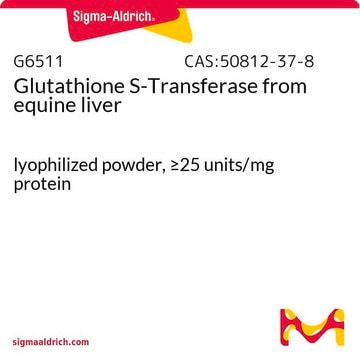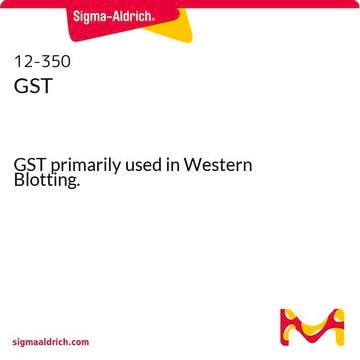GS70
GST P1-1, Recombinant Human
Synonyme(s) :
DFN7, FAEES3, GST3, GSTP, HEL-S-22, glutathione S-transferase pi
About This Item
Produits recommandés
Source biologique
human
Niveau de qualité
Produit recombinant
expressed in E. coli
Pureté
>95% (SDS-PAGE)
Forme
frozen liquid
Activité spécifique
60.45 units/mg protein
Poids mol.
23 kDa
Température de stockage
−70°C
Informations sur le gène
human ... GSTP1(2950)
Description générale
Actions biochimiques/physiologiques
Stockage et stabilité
Code de la classe de stockage
10 - Combustible liquids
Classe de danger pour l'eau (WGK)
WGK 1
Point d'éclair (°F)
Not applicable
Point d'éclair (°C)
Not applicable
Certificats d'analyse (COA)
Recherchez un Certificats d'analyse (COA) en saisissant le numéro de lot du produit. Les numéros de lot figurent sur l'étiquette du produit après les mots "Lot" ou "Batch".
Déjà en possession de ce produit ?
Retrouvez la documentation relative aux produits que vous avez récemment achetés dans la Bibliothèque de documents.
Les clients ont également consulté
Notre équipe de scientifiques dispose d'une expérience dans tous les secteurs de la recherche, notamment en sciences de la vie, science des matériaux, synthèse chimique, chromatographie, analyse et dans de nombreux autres domaines..
Contacter notre Service technique








